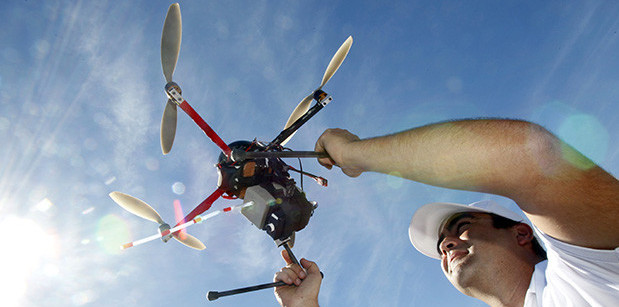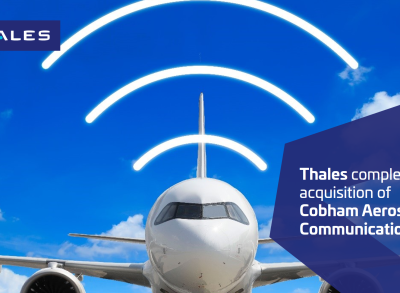A major player in the Aquitaine unmanned air systems industry
In the fast-changing market for unmanned air systems and services, Thales is not only pioneering new technologies and solutions for customers but helping to drive the expansion of a whole new industry, both regionally and internationally.

"Thales has extensive experience in military unmanned air systems, and as a co-founder of the AETOS cluster we want to support the major ecosystem that is now emerging around unmanned systems and services. The cluster has attracted other large companies, including Airbus Defence & Space, Safran and Dassault, as well as numerous SMEs and start-ups serving different parts of the aerospace market,” explains Jean-Marc Grolleau.
Collaborative R&D projects
One of Thales’s specific objectives is to promote collaborative developments and innovative products by working hand-in-hand with some of the SMEs and research institutes taking part in the UAS cluster initiative. The CARUS project (Cooperative Autonomous Reconfigurable UAV Swarm), for example, is a collaborative venture with several SMEs and the LaBRI research lab (Laboratoire Bordelais de Recherche Informatique) aiming to prove the feasibility of a swarm of UAVs conducting a mission autonomously — in other words, making their own decisions without being controlled from the ground at every step.
In addition to these futuristic projects, cluster members have developed a number of fully operational unmanned air systems, some of which are already commercially available. or Several projects conducted at the AETOS cluster have demonstrated the operational and economic benefits of unmanned air systems in various applications and are now being developed into products and solutions for customers. Several SMEs have already moved into the production phase. Fly-n-Sense, for example, is offering an unmanned air system that can fly over a wildfire front and transmit real-time images to a command centre, helping the authorities to make critical decisions about the resources needed on the ground. The system is being proposed to fire-fighters in France and has already been selected in Canada.
Thales’s involvement in the cluster goes well beyond promoting innovative R&D projects. A number of Thales employees are taking part in the dedicated training modules offered by Bordeaux University and various engineering schools to help tomorrow’s specialists understand the science and culture of unmanned air systems.
What next?
‘’The UAS industry is attracting more and more companies to the region, creating more than 50 new jobs here over the last four years,” says Jean-Marc Grolleau. As well as providing an added boost to the regional economy, the cluster is spearheading efforts to support the French UAS industry at the national and international levels and establish its leadership in the global marketplace. “In the space of just five years, Aquitaine has managed to rally its forces and expand its influence well beyond the borders of the region. By 2020, we intend to make Aquitaine THE benchmark for unmanned air systems and services,” concludes Grolleau. It’s an ambitious objective, but the results achieved to date bode well for the future. One recent success story is the ATEX system from Xamen Technologies — the world’s first unmanned air system designed to operate in explosive or highly inflammable conditions — which has sparked a huge amount of interest from operators all over the world!
Find us on Twitter @thales_avionics, on our official Youtube channel Onboard TV and on LinkedIn Thales Aerospace.




